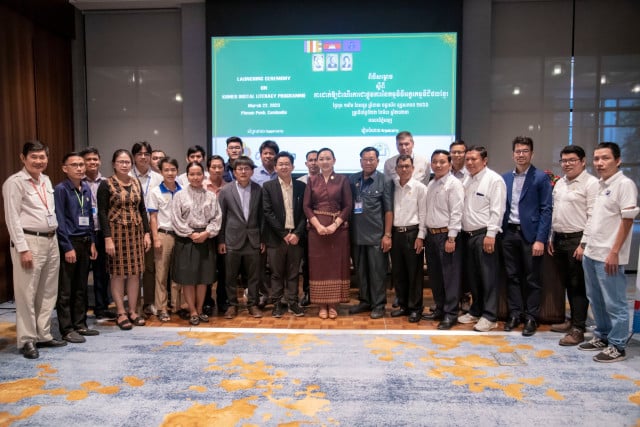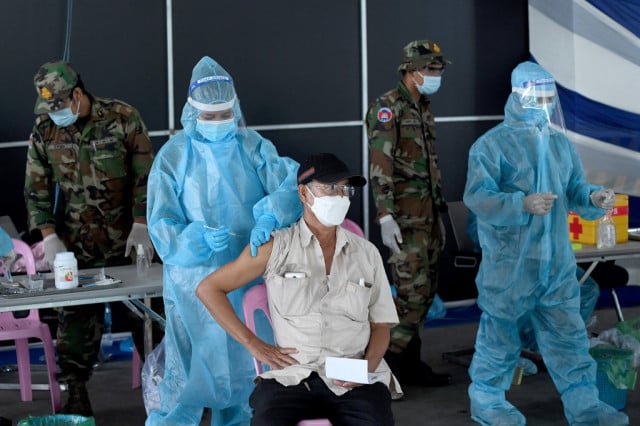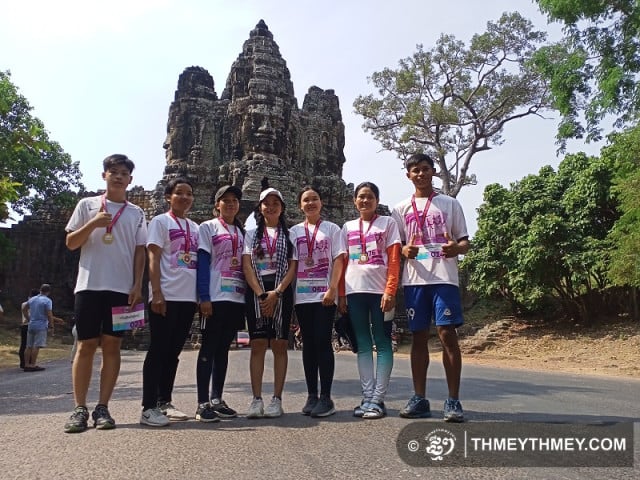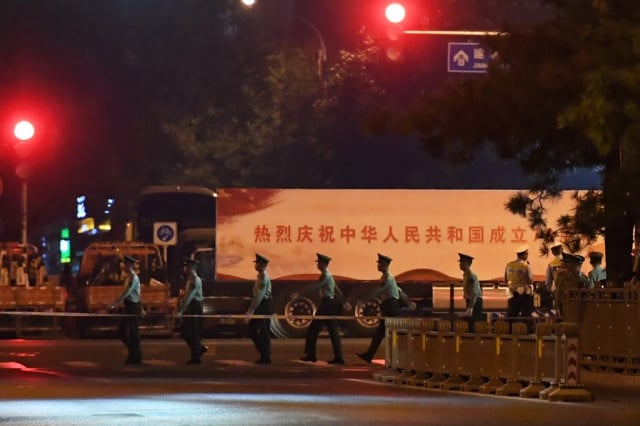Digital Literacy Drive for Students

- By Nhoek Samoun
- March 24, 2023 11:55 AM
PHNOM PENH – A digital literacy program has been launched to promote skills in the education sector and among students.
The Khmer Digital Literacy Program was officially introduced by the Ministry of Education, Youth, and Sports with the Kampuchea Action to Promote Education (KAPE) and the Meta Company on Mar. 22.
KAPE and the Meta Company are working together to develop the program, which has been integrated into the curriculum in six New Generation Schools with 12 trainers to receive instruction on the program.
Education Ministry Secretary of State Kim Sethany said a workshop for trainers includes the Information Technology program — which already exists in the New Generation Schools — and the We Think Digital program that will provide them with knowledge to share at the target schools.
Sethany said the course is aimed at Internet beginners as well as at promoting existing digital skills.
“I am looking forward to seeing the result of this program — to know to what extent the program will help the teachers and students — as this training will provide the schools with necessary skills for development during the digital era, and we will be waiting to see their improvement and success,” Sethany said at the program launch.
The six-month program will run from April to September. KAPE and Meta Company hope the 12 trainers will pass on their knowledge to between 3,000 and 5,000 students.
Hin Sim Huon, KAPE executive vice president, said the purpose of the program is to provide the knowledge and ability people need in the digital era.
He said technology has pros and cons, but it depends on the users’ time management. There would be no harm to children if they use technology in the right ways. For teens and adults, the good way for technology use is research to help them study.
“Unlike the New Generation Schools, using smartphones in class is not allowed in most schools because it affects students’ studying,” he said.
“In contrast, the New Generation Schools allow students to use smartphones in class but only to do research. After doing the tasks, the students can’t use their smartphones freely.”
Sim Huon said using only textbooks for teaching is not enough. Teachers need to search for more lesson-related documents to seek new ideas.
Heng Pheakdey, public policy manager of the Meta Company based in Cambodia, said the company believes that digital literacy is necessary for everyone to fully participate in the digital world.
The company would continue its partnership with this program to provide Cambodians with the skills needed for using the Internet safely and effectively.
According to the Digital Government Policy 2021-2035, only around 30 percent of the population have foundation digital skills.
Based on the Telecommunication Regulator of Cambodia, in 2022 there were 17.2 million internet subscriptions.
Since the COVID-19 outbreak in 2020, the number of mobile and internet users increased by 50 percent, said Chea Vandeth, the Minister of Posts and Telecommunications, in August last year.
Meng Seavmey contributed to the story.















